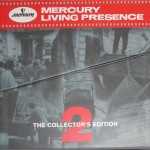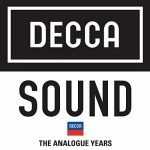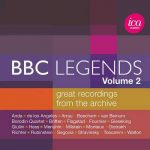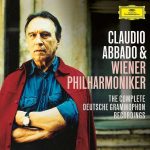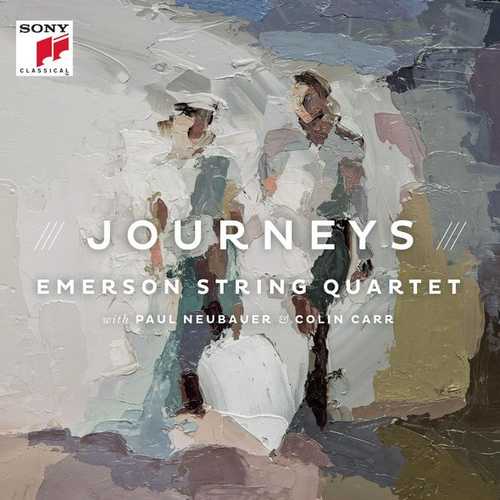
Composer: Arnold Schoenberg, Pyotr Il’yich Tchaikovsky
Performer: Colin Carr, Paul Neubauer, Emerson String Quartet
Format: FLAC (tracks)
Label: Sony
Catalogue: 88725470602
Release: 2013
Size: 279 MB
Recovery: +3%
Scan: yes
Tchaikovsky: Souvenir de Florence, Op. 70
01. I. Allegro con spirito
02. II. Adagio cantabile e con moto
03. III. Allegretto moderato
04. IV. Allegro vivace
05. Schoenberg: Verklärte Nacht, Op. 4
The Emerson String Quartet formed in 1976 and kept the same personnel for more than 30 years. Journeys marks its final release with original cellist David Finckel, who has departed to pursue other projects (notably duo concerts with his wife, pianist Wu Han). It thus represents a turning point of sorts, and it is good to see that the group has not been content with simply recrossing safe territory but has delivered something innovative, both within its own catalog and in the general chamber music marketplace. The Emerson Quartet’s repertory has rested solidly in the Haydn/Beethoven/Brahms mainstream. The group has rarely recorded Tchaikovsky, and Schoenberg never until this release. Journeys contains both, in the form of two sextets, Tchaikovsky’s Souvenir de Florence and Schoenberg’s Verklärte Nacht. (The Emerson Quartet is joined by violist Paul Neubauer and cellist Colin Carr.)
The two works were written within ten years of each other, but they were at opposite extremes of the music of the period in their handling of tonality, and a conventional outlook would hold that they could hardly be more different. Yet the players seem to be suggesting that composers can’t fully escape the spirit of the times in which they live, and that in fact, the two works have much in common. Both were written for the combination of two violins, two violas, and two cellos. Both, as the album title suggests, depict journeys, Tchaikovsky’s physical, Schoenberg’s psychological. And there is a certain emotionally overheated quality that spills through the neat classic forms of the Souvenir de Florence and links it to the more radical world of Schoenberg.
The performances seem to stress the connection, with an unusually nervous Tchaikovsky that stresses the dissonances and a warmly Romantic Schoenberg. You may be able to find performances that bring out the basic traits of each work more effectively, but it’s safe to say that they haven’t been put together in this way. A bold move from some veteran musicians.
